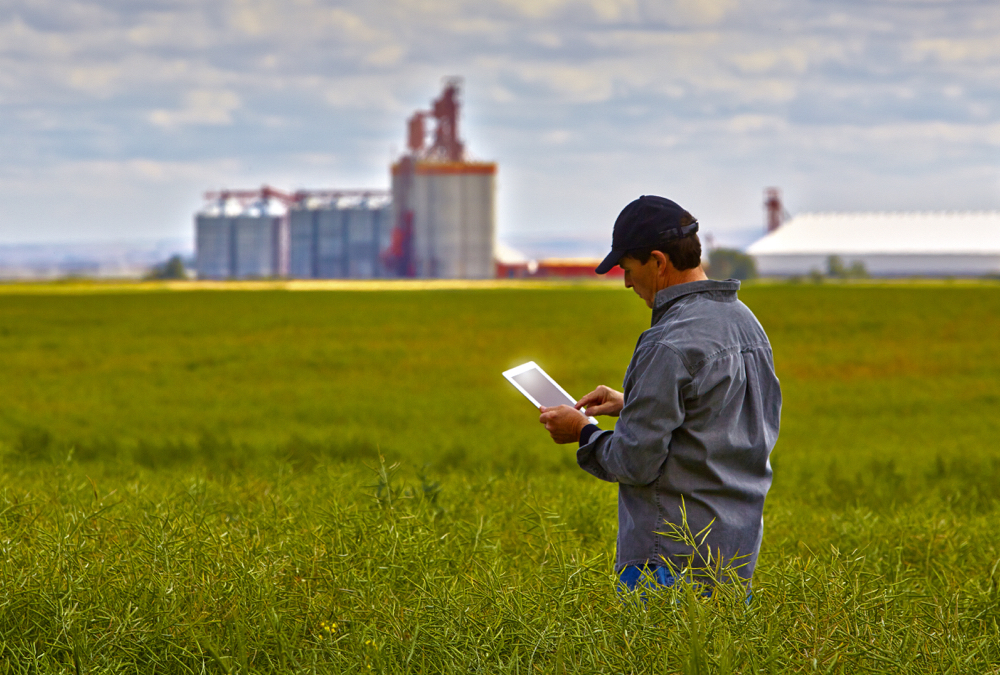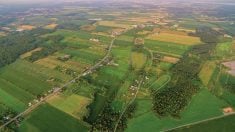Norm Dreger has seen a lot of farms and agribusinesses change. Like a lot of Country Guide readers, he’s seen it from the family farm, but he also saw it in his earlier role as head of business development at Syngenta and he sees it now in his current job as principal at Osborne Interim Management.
So, what does Dreger think about change? Has he picked up any magic secrets?
“A lot of what I say will sound like common sense,” Dreger says.
Read Also

The big squeeze: How to be fair to siblings during farm succession
Managing sibling business relationships on family farms.
But, in fact, that might be exactly what’s so magic about successful change on the farm. A lot of change management really does boil down to “just common sense.”
On the farm, though, putting common sense into practice often takes uncommon skill.
So, is your farm getting it right?
Change comes for everyone

“Change can occur by choice — or change can be forced on you,” Dreger says. There are many “good” reasons for a farm to change, like adopting a new technology or embracing an opportunity for vertical integration, or expanding the business to bring in another family member. But sometimes farms need to change for less positive reasons, persistent drought, low commodity prices or the loss of a key team member.
Whether change comes from a “good” or “bad” place, it is still stressful for most farm teams or families. “Often, change is a discomfort for people,” Dreger says.
Before digging in, farms that are good at managing change make sure the proposed change is the best decision for the farm, and they make sure they’re clear about the objective of the change. This includes identifying expected long-term benefits and planning ways that the farm team can share in these benefits.
“Farmers often get so busy that they don’t sit back and think of it in these terms,” Dreger says.
It all means that farm management teams that are good at change meet to discuss the potential costs and benefits. And whether they meet in a boardroom or informally in the kitchen, good managers listen to each other.
“They’ll push each other, challenge each other with the right questions. Make sure they’re basing their decision on the right information,” Dreger says.
Change management can be difficult in any line of business, but farmers are often also managing family dynamics.
“In a farm where they’re managing change well,” Dreger says, “they might be related, but that’s not why they’re following that process. They’ve got the right skills — they’re good communicators, they’re especially good listeners. They can have the discussion.”
Sometimes, working with family makes change easier. Family members have usually spent enough time together to know each other’s goals and motivations. And, Dreger says, “You’ve been raised by those folks, so clearly you have the same kind of value system.” But that might not always be the case. “Influencing Mom, Dad or brother is actually more difficult than influencing someone who has been your manager since last month and probably won’t be your manager in two years.”
How you work
“In operations that manage change well,” Dreger says, “the people issues aren’t typically among the siblings and Mom and Dad.” That is, family members can resolve or set aside their differences to make the farm work.
Even when everyone on the management team is related — maybe especially then — Dreger says it’s important to have a formal process for making decisions, and “clarity in roles.”
Dreger calls the way a business operates its “ways of working” — a term that refers to how the team works together, the culture of the team, and its accepted ways of communicating. There are times when a farm family’s ways of working are less than ideal.
Sometimes, Dreger says, families take each other for granted. “Sometimes you say things to a sibling that you would never say to an employee.” — things that are not very nice.
“You might get away with it,” Dreger says, “but you shouldn’t, because this is a business and you have to be accountable to the business and others in the leadership team. You’ve got to conduct yourselves accordingly.” Dreger points out that if you conduct yourself “less than professionally” in a corporate environment, you might be fired, or at least not promoted. A farm is a business, Dreger says, so treat it like a business, and treat each other with respect.
When family members aren’t treating each other with respect, he says they should talk openly about it, because some family members might not even realize they’re undermining team members in front of non-family members. “Are they saying something negative about their brother in front of the mechanic? In the workshop? Maybe even in the grocery store?”
If this is happening, Dreger says, “Discuss it. Put it on the table.” As well as words, team members might also assess other communication tools like body language and how they speak to each other. “On farms that manage change well, a lot of them are starting to do that, or have been doing that.”
Communication lines
Farm managers who are good at change are able to clearly communicate to the team why they’re making the change and how the farm will benefit. Given that the change is likely to cause some anxiety and stress, Dreger says farm managers need to make sure everyone understands that “the pain will be worth it. You have to frame any potential change on the farm in a way so people can see the value.”
Farm managers who are good at change also look for ways to correct problems from the start. Farm employees typically wear multiple hats and work hard, so is there a way to minimize the negative impacts of change? For example, Dreger says, “If Tom has to do a lot of extra work, what can we do to ease his load in the interim?”
Once a plan to change is in place, farms that are good at managing change will also make sure to plan followup meetings, where they can see what is going as planned and where things aren’t working. “Review where you’re at,” Dreger says. “It sounds formal, but it doesn’t have to be.”
Know yourself, and your team
Dreger says farmers who are good at change “know themselves, they know each other, and they know the operation.” Every member of the team should know what they’re good at and what they’re not good at, because we sometimes have blind spots.
Shawn Shewchuk is a coach, consultant and speaker at his Calgary-based business Change Your Results. Shewchuk has helped many business owners work through change.
Shewchuk says farms that are good at change can “download, delegat, and automate.” He uses “download” to refer to outsourcing some jobs outside of the business.
Farmers should identify what they’re not good at and find a way to download or delegate these tasks. Shewchuk says he once had a client with a blind spot. He was an older man who had been an accountant and now owned a large farm operation. When Shewchuk visited the farm, 10 or 12 years ago, the farmer showed him a stack of old-style ledger books — he was doing the farm books with paper and pen. “I didn’t realize anyone still used this,” Shewchuk says.
Shewchuk asked him about bookkeeping software. “Software?” the man replied. “Do you mean computers? Oh, that’s just a fad, son.”

Farms that are good at change can evaluate their own skills honestly. There are times when honest input from the rest of the team might be helpful. Maybe you could try bookkeeping software. Or maybe you’re not as great at welding as you think you are. “Farmers all have those little idiosyncrasies,” Shewchuk says.
“You cannot become better until you know what you should not be doing,” says Shewchuk. He says farmers are especially prone to wanting to be involved in every aspect of the farm. He refers to the “if I don’t do it, it’s not done right” mindset as “Entrepreneur Syndrome.” When someone on a farm management team has this syndrome, successful change is going to be difficult. “What we can accomplish is finite, as one person,” Shewchuk says. To accomplish more, a farm that is good at managing change is open to bringing in new skills, either through education, adding new team members, or hiring short-term professionals for help.
Share the benefits
After working with many clients, Shewchuk has learned “Change doesn’t happen without the motivating factors.” He says most people are motivated by either time or money. Usually, money can be used to buy time, for example hiring more staff, or automating more jobs.
On farms that are good at managing change, team leaders understand what motivates each team member and how team members can share in the benefits from change.
Shewhuck also points out that many farmers will wait too long to make changes that need to be made. “Most people remain the same until the pain of remaining the same is greater than the pain of change.”
Get a strong team
Laura Smith, a principal at Virtus Group, a Saskatchewan-based business and advisory firm, has seen many farm clients go through change over the course of her 20-year career. “Farms that are good at change are the successful ones,” she says.
Like Shewchuk, Smith stresses the importance of knowing what you’re good at, surrounding yourself with a good team, and getting good advice from outside sources. Having these factors in place makes it easier for farm managers to know when it’s time to make a change, and what change to make. “The farms that are good at change know what they want to do, then ask for advice on how they get there,” Smith says.

Sometimes farmers struggle with hiring experts. “People come into (the process) on the defensive,” Smith says. For example, a farmer who’s spent a lot of time studying grain markets may be reluctant to hire a marketing advisor, or a farmer who’s used fungicide for years may not want an agronomist’s second opinion. “It is humbling,” Smith says. “It’s a tough thing to face.”
At large corporations, human resources staff often introduce tools and hold special retreats to make sure people understand their skill sets and know which skills need improvement. On a small family farm, Smith says, “it’s something you might overlook.”
To make sure your team is up to making a change, Smith suggests joining a peer group or looking at industry benchmarks to see how your farm stacks up against other farms. For example, if you’re seeing much lower gross revenue per acre than similar-sized farms, maybe there’s something your team can address.
Always be ready
Dreger, Shewchuk and Smith agree that the farms that are best at managing change are always prepared to make a change whether that’s because an opportunity has arisen or they’re forced into it. Maybe a block of land comes up for sale. Maybe a key team member gets divorced. Whatever the challenge or opportunity, these farms get on with it.
On a farm that’s good at change, even the loss of a team member can be managed if they have “clarity of roles,” Dreger advises. Matching that with Shewchuk’s suggestion of knowing what motivates each team member makes it easier to determine who can fill in some of the missing team member’s responsibilities or whether new staff will be needed right away.
As Dreger predicted, advice on managing change seems like common sense. But just because we know something doesn’t mean we’re doing it. These are all change management best practices that you’d use as a checklist if you worked as a full-time manager in a corporate business, Dreger says. “So do the same thing on the farm.”
– This article was originally published in the March 2024 issue of Country Guide.
















